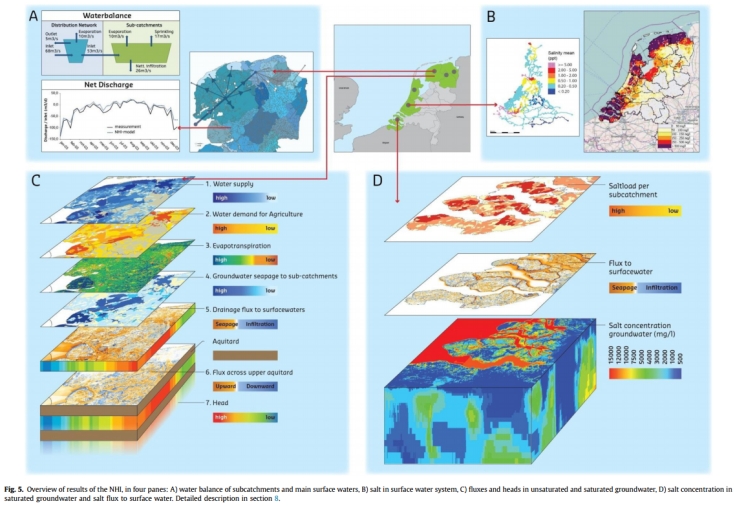Netherlands Hydrological Instrument
Autonomous trends, climate change and human activities are expected to have a significant impact on Dutch water management. In the context of the Delta Programme, Delta Scenarios have been drafted on the basis of long-term expectations for climate and socio-economic development. For a densely-populated country like the Netherlands, the scenarios have a considerable bandwidth, resulting in potentially far-reaching effects for water management and the associated functions.

Adverse effects
The expectation is that coastal provinces will increasingly have to deal with salinisation and land subsidence, and that it will be increasingly necessary to flush polder areas with fresh water. Depending on the scenario, higher sandy areas will suffer to a greater or lesser degree from long-term drought. All areas can expect problems with more extreme precipitation patterns. Phased adjustments, which have been set out in the Delta Decisions, have been proposed for the main water system.
Hydrological models
In the Netherlands, the usual approach to evaluating future scenarios and the assessment of packages of measures involve using hydrological models. Both central government and regional authorities use these models. The Netherlands Hydrological Instrument is a set of instruments with data and tools that can be used to set up a model at the national or regional scale. These models are widely available as support for national policy studies, operational water management (Rijkswaterstaat Operational Systems for water management) and the regional implementation of measures.
Contribution by Deltares
Deltares plays a regulatory and implementation role with respect to the substantive development of this instrument. That involves working together closely with other research institutes and a consortium of clients.


